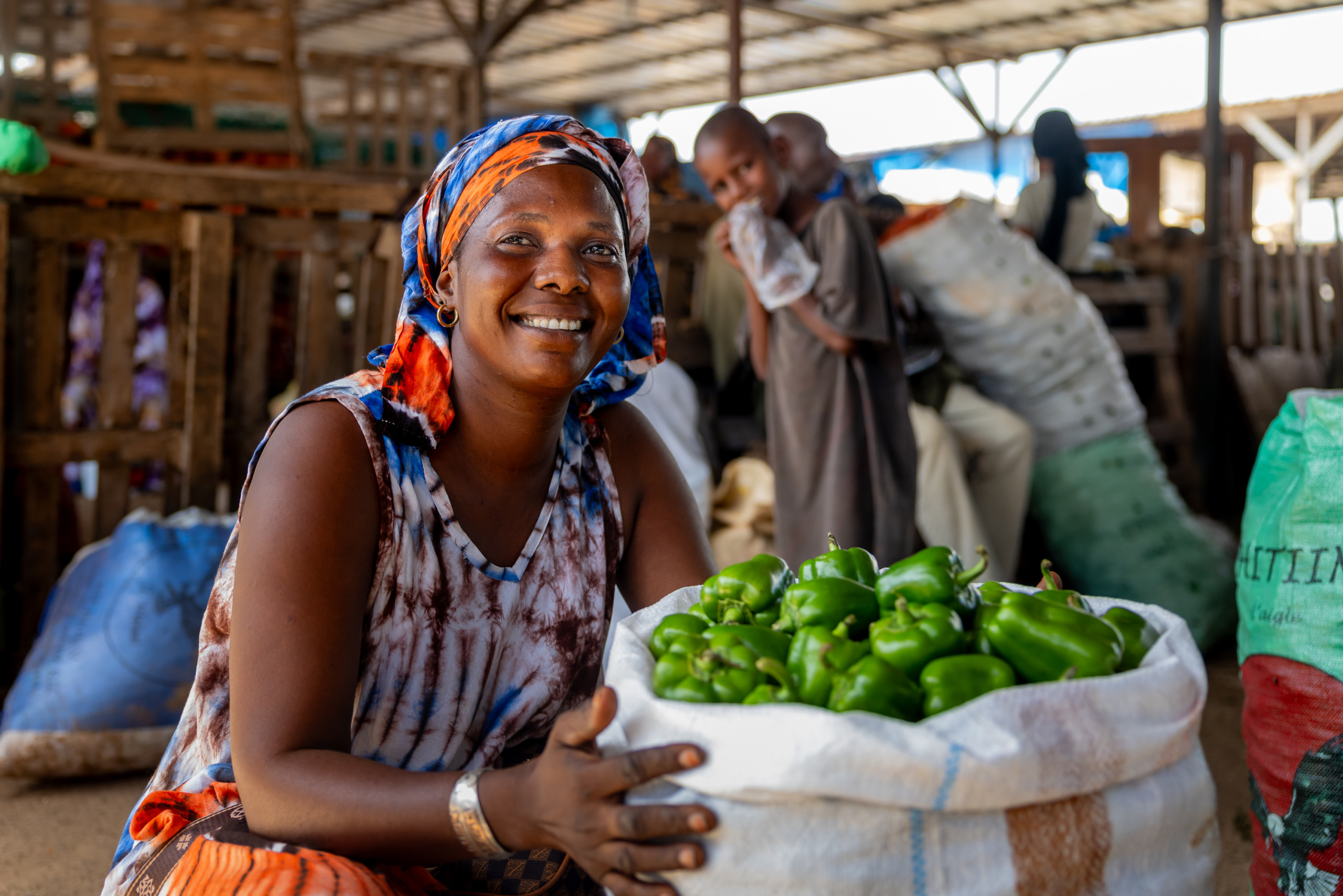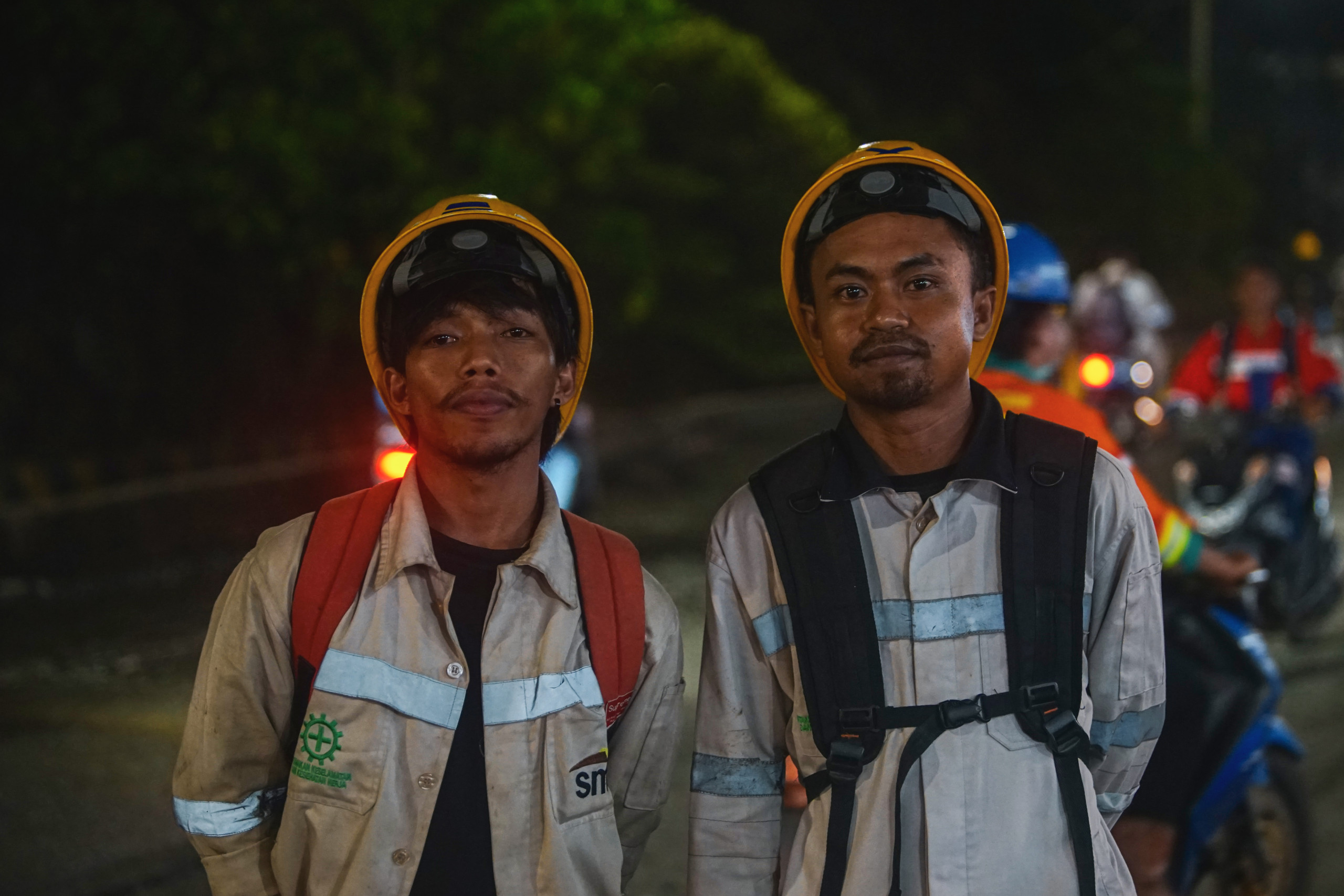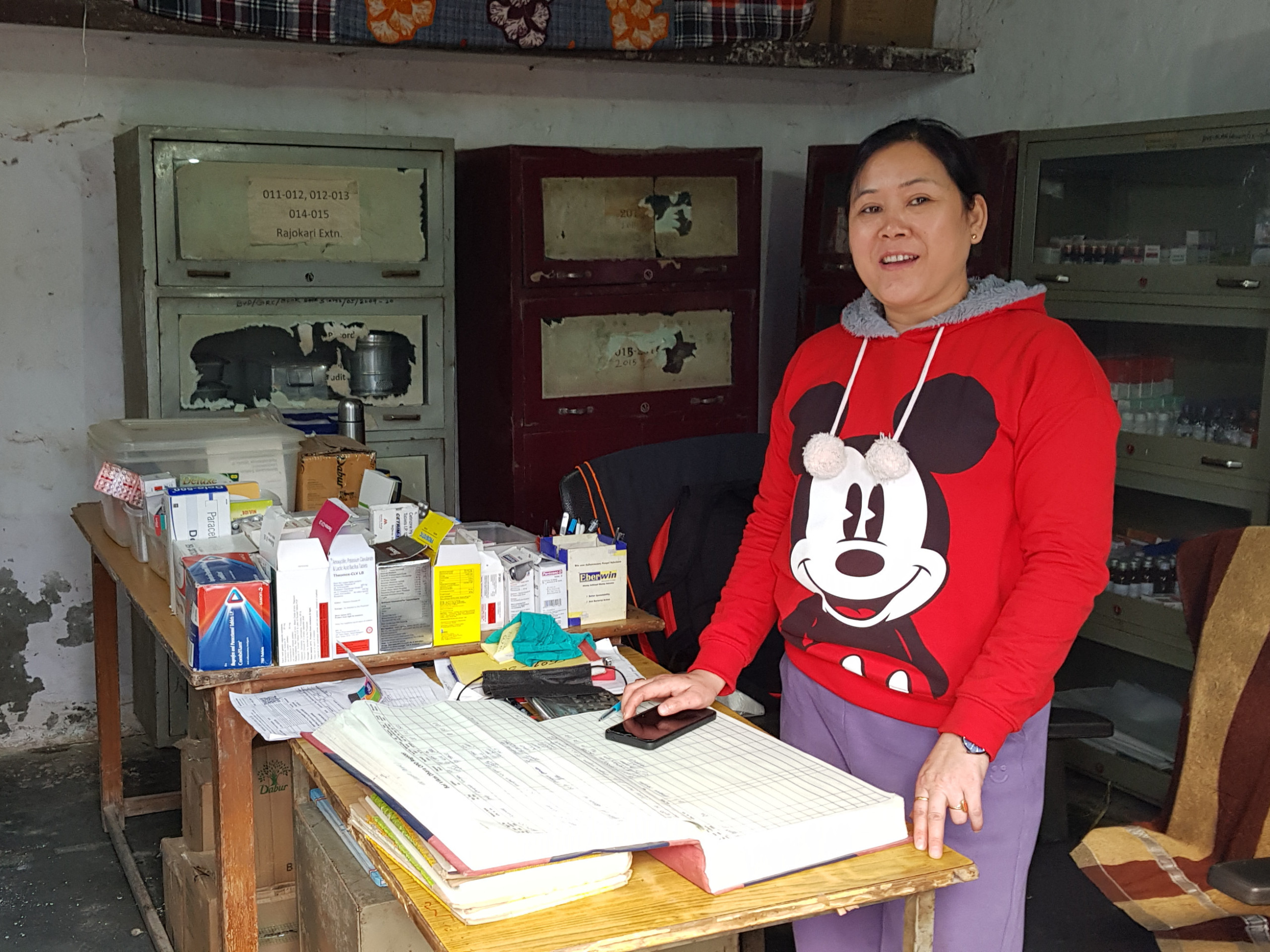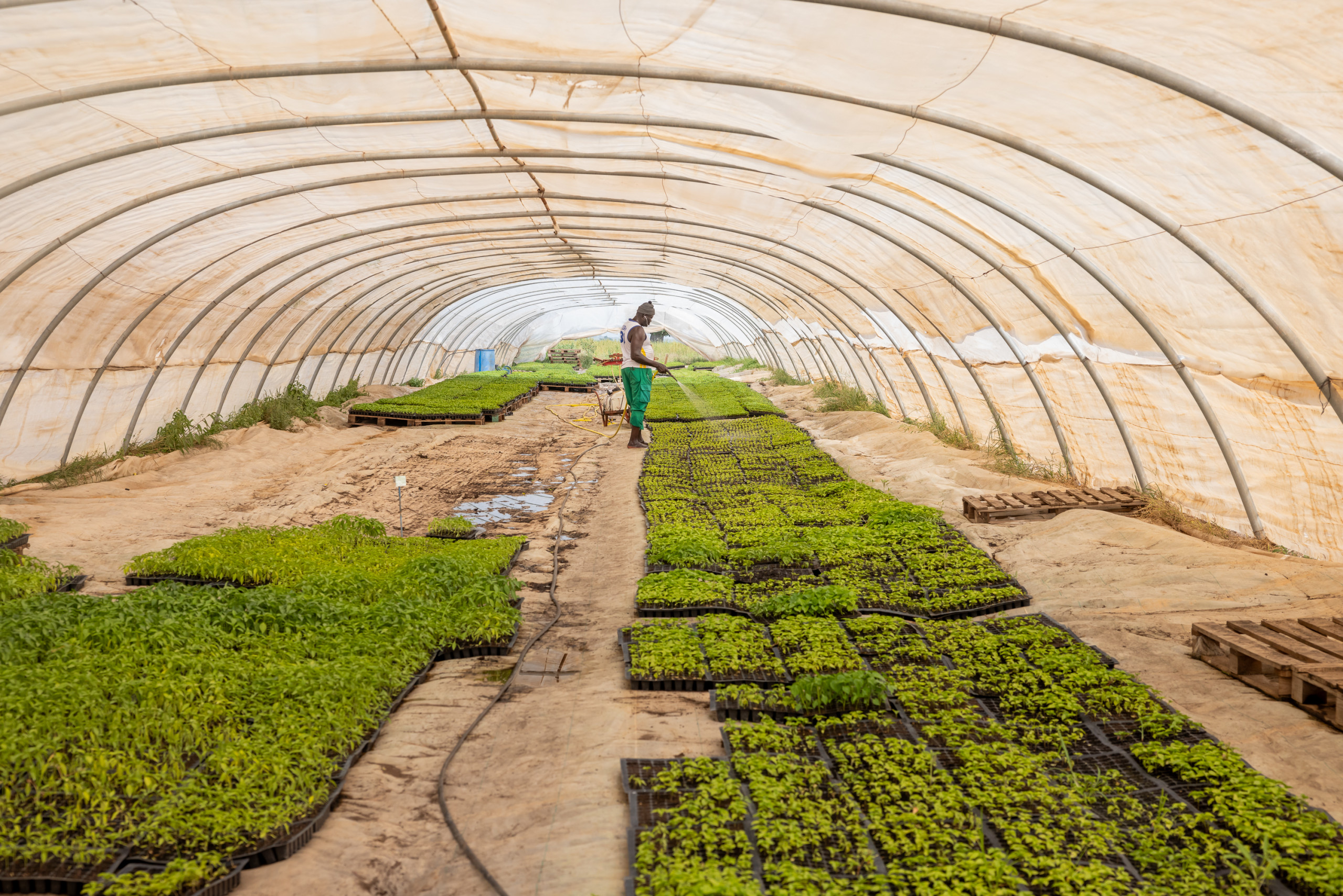Partners in development
Internationally, the Netherlands is a pioneer in linking trade and development. Not surprisingly, the Netherlands has a long tradition of constructive consultation in which employers and employees reach agreements. This often leads to win-win situations, which also pays off internationally. Together with Dutch embassies, CNV Internationaal and Mondiaal FNV are working on aid and trade as part of the Ministry of Foreign Affairs' Combination Countries Policy. This programme is coming to an end this year. That's why we would like to inform you about the importance of this programme.

In this programme we organise social dialogue with companies, governments and workers in producing countries in different value chains. Both organisations have worked for decades with unions in producer countries to improve work and incomes. The relationships of trust built with them are important for achieving results in countries where there is often no space for social dialogue.
Trade unions play a vital role in ensuring that trade contributes to development. Thanks to trade unions, living wages are paid in the long term and work is formalised so that it is based on employment contracts.
This is important for European reporting requirements. More fundamentally, the development of fair work contributes to economic development. That's the reason why SDG8 is about promoting fair work and inclusive economic growth.
The aid and trade program
Examples from Asia and Africa

Getting to work at the nickel smelter company safely thanks to company shuttle buses
Indonesia
Collective bargaining agreements in nickel companies contribute to due diligence of Dutch companies
Indonesia holds one of the world's largest nickel reserves and produces nearly half of this vital metal for energy transition. In an effort to strengthen its own economy, Indonesia banned the export of raw nickel. As a result, a huge nickel-processing industry emerged in Sulawesi at an extreme rate.
Unfortunately, working and living conditions are abysmal. In a tragic fire at one of Sulawesi's nickel smelters in December 2023, 21 people died and dozens were injured. Local unions came up with a package of demands toward companies to improve safety and working conditions.
With help from CNV Internationaal, concrete proposals were developed for better personal protective equipment and more realistic production targets. The unions are taking these proposals to reduce risks into the collective bargaining process. Laying down agreements in collective agreements contributes to the due diligence of European companies. Improvements are thus concretely recorded and compliance can be better monitored.
Consultation between unions and companies has led to the first improvements. For example, shuttle buses now run, allowing people to get to work safely. Previously, workers - including pregnant women - had to walk 3.5 km along a very dangerous road. Companies see the value of this trade union work, so some are also providing office space and financial support to enable trade union work on their premises.
Unions negotiate living wages

Bangladesh
Dutch companies can track progress thanks to better data
In Bangladesh, thanks to this aid and trade program, partner unions of Mondiaal FNV were able to negotiate well with the government on livable wages in the leather and textile sector. Through Mondiaal FNV's support in union organization and capacity building, a higher minimum wage for the sector was eventually negotiated. This development offers hope and highlights the importance of union involvement.
Unions also continue to innovate technologically. Improving data tools makes developments more transparent. This data helps with social dialogue between unions and companies. And also important for the Netherlands, is that this data makes it easy to track progress at the end of the trade chain at Dutch companies. Thanks to the program's funds, first steps have been taken toward improving knowledge and resources for technological innovation at union level.
Unions contribute to new jobs and greater security for young people in horticulture
Senegal
Better working conditions and formalization in horticulture contribute to economic growth and international food security
Thanks to the aid and trade budget, CNV Internationaal conducted research on working conditions in the horticultural sector in Senegal. (Also watch the video and webinar) This shows that workers in this labor-intensive sector are in a vulnerable position, caused by too low wages, unsafe working conditions, inequality, lack of legal protection and exploitation.
Most work is done informally, without a labor contract. This makes it extra difficult for workers - and for trade unions - to stand up for their rights, but also for companies to prove that people receive fair wages.
CNV Internationaal then initiated a network aimed at cooperation between trade unions, companies, local organizations and governments to address these risks and work to improve working conditions and formalize work. This also provides new jobs and greater security for the young Senegalese population
Thanks to unions, workers make their voices heard over dangerous pesticides

India
Decent work and OSH on radar of Dutch business community
Mondiaal FNV works within this program in two sectors in India: horticulture and waste management. Work within the aid and trade program has shown great collaborations in the first year with the Dutch embassy, Dutch business and other relevant stakeholders.
Trade unions have become more involved in events and trade missions. The importance of issues such as decent work and Occupational Safety and Health (OSH) is thus increasingly visible on the radar of the Dutch business community. As a result, they are better prepared for upcoming international CSR legislation.
Thanks to the aid and trade program, 10,000 workers in the horticulture sector have been registered with a union, 68% of whom are women workers. This is an important milestone. Workers are now better represented, for example in negotiations with the government on minimum wages. Together they can make their voices heard to seed producers and companies about the impact of dangerous pesticides. Young people and women have also become more involved thanks to the program's activities.
For example, 29 youth have been trained in conducting surveys and 50 women leaders have been trained on sexual harassment in the workplace, aggression against women and how to build and strengthen a women's vigilance committee. Informal work is also receiving more attention thanks to the program, which is important for achieving Development Goal 8. Specific research on the informal sector was discussed in detail at a roundtable meeting held by the Dutch government with various stakeholders.

Human Rights Due Diligence and the Role of Unions
Our programs in metal mining and horticulture, among others, show how aid and trade reinforce each other. The collaborations with the Dutch government, embassies, Dutch businesses and local trade unions contribute to development that benefits everyone.
In addition, large Dutch companies benefit from involving trade unions because of upcoming legislation such as the Corporate Sustainability Due Diligence Directive. After all, they have an obligation to properly map out how the value chain works and what problems need to be solved.
By participating in collaborations in the aid and trade program, Dutch companies have an edge in this area, which also gives them a competitive advantage. This program shows concretely how multiple stakeholders are working on this together, with positive impact in producing countries.
The Combined Aid and Trade Program will end in 2025. Continuation is necessary to ensure that the effects of current activities persist in the longer term.
With upcoming legislation, this is all the more relevant. This offers opportunities for Dutch embassies, the Ministry of Foreign Affairs, the (Dutch) business community and trade unions to work together more intensively on fair work and development.
Contact
Contact us to explore opportunities for collaboration:
CNV Internationaal
Elles van Ark, Managing Director
e.vanark@cnv.nl
+31 6 2818 8972
Anne Wehkamp, Strategic Policy Advisor
a.wehkamp@cnv.nl
+31 6 8359 4085
Global FNV
Karen Brouwer, Director
karen.brouwer@fnv.nl
+31 6 1002 6540
Dimple Sokartara, Policy Officer Human Rights Due Diligence & Combi-track
dimple.sokartara@fnv.nl
+31 6 2825 6628